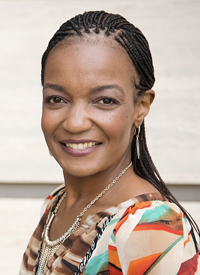Is Chemotherapy an Emergency When Fertility Is at Risk?
Stephanie L. Jackson, MSN, RN, AOCNS, BMTCN

A 20-year-old married female presents to the emergency room with a white blood cell count of 800,000. She informs the medical team she is 10 weeks pregnant and shortly after begins to complain of abdominal pain. After a rapid and extensive workup, the medical team informs the patient she has suffered a miscarriage and possibly has newly diagnosed leukemia. After moments of sobbing with her husband, the patient looks up at the physician and says “This was my miracle baby. Will I be able to have another baby?”
The ability to conceive and have a child is often on the minds of patients during childbearing age when they are diagnosed with cancer. Chemotherapy, radiation, hormone therapy, and even stem cell transplantation has the ability to cause infertility. These therapies can interfere with uterine function, prevention of ovaries from being released, and/or fetuses from being carried full term leading to miscarriage. In men, these drugs can impact their erection and ability to produce semen. Drugs such as busulfan, carmustine, cyclophosphamide, doxorubicin, melphalan, thiotepa, and vincristine are commonly given in high doses that can cause permanent damage to fertility. Hormones such as Tamoxifen can interfere with the ability to have children as well as induce birth defects. Targeted therapies such as bevacizumab (Avastin) can lead to permanent ovary damage and thalidomide can cause birth defects. And finally prior to stem cell transplantation, high dose chemotherapy and radiation are given which lead to a disruption eggs from being released from the ovaries.
The American Society of Clinical Oncology recommends those with cancer discuss the risk of infertility and preservation prior to starting chemotherapy. Even if the medical and nursing staff do not initiate the conversation, it is important that patients advocate for themselves to ensure they are equal partners in their care. Those who choose not to discuss their fertility prior to therapy may still have children after treatment however they should wait one year before conceiving. In the event, a patient is pregnant at diagnosis, therapy can be given to preserve the fetus until safe to electively deliver with minimal risk.
So, is chemotherapy an emergency? Not necessarily.
References:
- American Cancer Society. How cancer and cancer treatment can affect fertility in females. Retrieved from https://www.cancer.org/treatment/treatments-and-side-effects/physical-side-effects/fertility-and-sexual-side-effects/fertility-and-women-with-cancer/how-cancer-treatments-affect-fertility.html#references.
- American Society of Clinical Oncology. (2020). Your fertility and cancer treatment. Retrieved from https://www.cancer.net/sites/cancer.net/files/asco_answers_fertility.pdf.
- National Cancer Institute (NCI). Fertility issues in girls and women with cancer. Accessed at https://www.cancer.gov/about-cancer/treatment/side-effects/fertility-women on October 18, 2020.
Stephanie Jackson is co-editor in chief of Oncology Nursing News and a nationally board-certified clinical nurse specialist specializing in oncology and bone marrow transplantation. She is currently the clinical nurse specialist for the hematology/stem cell transplantation units at a large academic medical center in Los Angeles, California. She has over 2 decades of nursing experience which includes various positions such as acute care, ambulatory, academia, home health, and hospice. She is a member of several professional nursing and community organizations. Some notable mentions include the National Council of Clinical Nurse Specialist, Association of Clinical Nurse Leaders and Oncology Nurses Society. She is the former president of the Greater Los Angeles chapter of Oncology Nursing Society and is currently pursuing her doctorate at Grand Canyon University in Phoenix, Arizona. It is without doubt that her passion for oncology patient stems from her own experience and survival of childhood cancer.
Shared Model of Care Post-HCT Offers Safe Follow-Up, Reduces Patient Burden
Published: March 19th 2025 | Updated: March 19th 2025Alternating post-HCT care between specialized facilities and local cancer centers produced noninferior non-relapse mortality and similar quality of life to usual care.


